Meet the Dulwich College Beijing bus monitors!
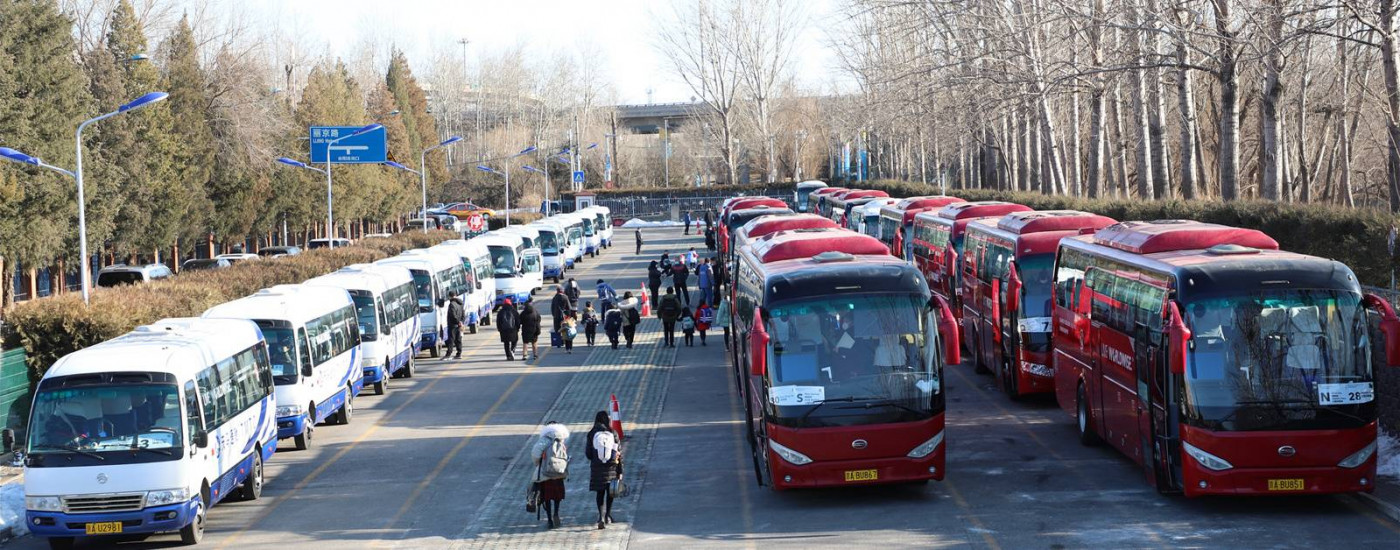
The Dulwich College Beijing (DCB) school bus services offer over 30 routes, covering most residential areas from downtown to campus. Not only do these school buses reduce traffic congestion around the school, but they also support our commitment to sustainability. With the help of professional bus drivers and bus monitors, the school bus operation follows strict safeguarding and Health & Safety policies and measures.
While the responsibilities of bus drivers are usually easily grasped, those of our bus monitors may be less familiar to a majority of the community. Families whose child(ren) take the school bus know bus monitors as professional daily care providers. Adaptative, devoted and caring, the DCB bus monitors enjoy working with children of different ages and find it rewarding. We met them to learn more about their responsibilities and challenges before and behind the scenes.

How many bus monitors are there in the school bus team? How many years have they worked at Dulwich College Beijing on average?
In total, we have 35 bus monitors who have worked in the DCB school bus team for five years on average.
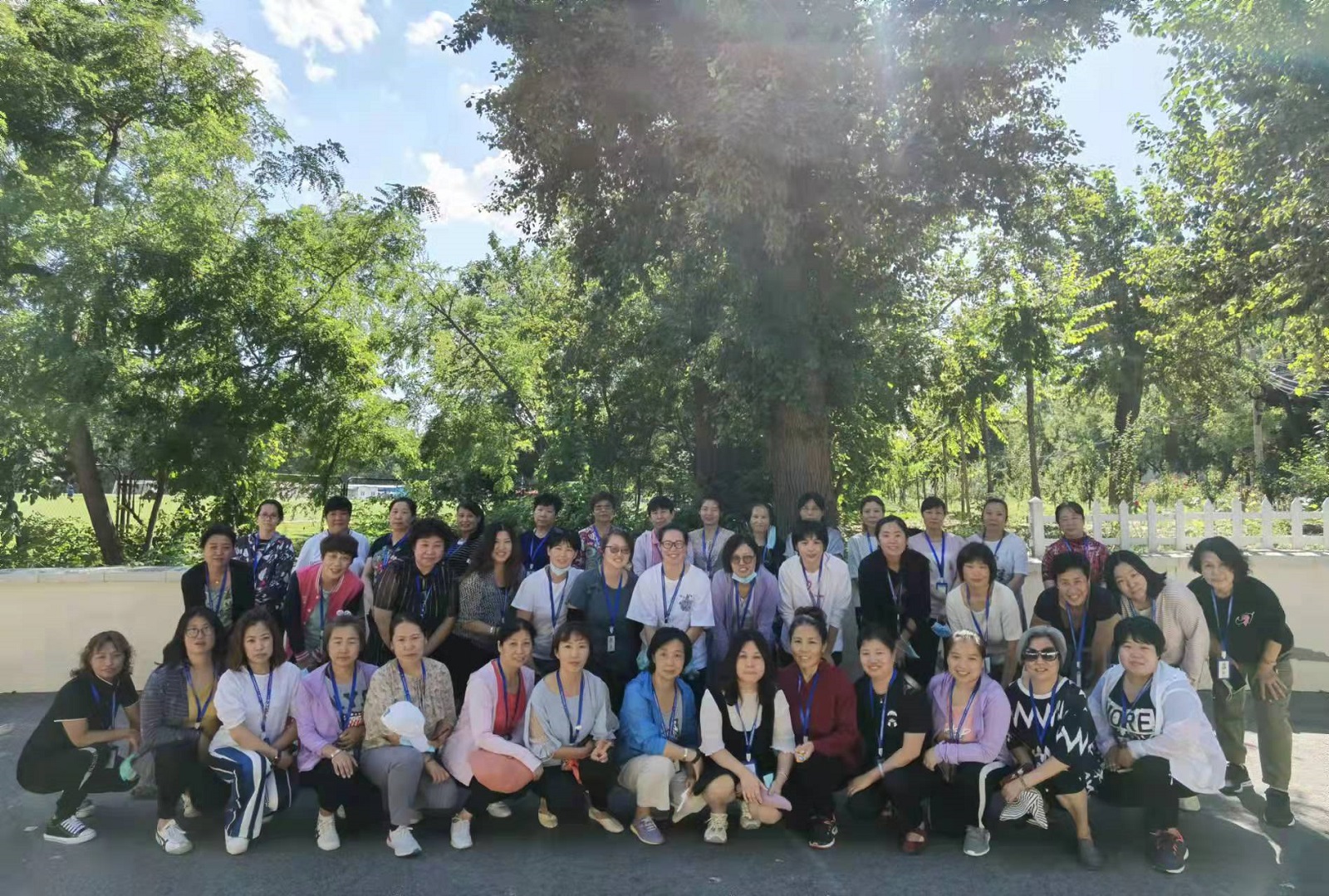
What kinds of training does the College provide to bus monitors? How does their work reflect our safeguarding procedures?
Upon joining DCB, all monitors receive training on safety and their daily routine tasks. Every term, they are provided with additional training like safeguarding, safe touch, first-aid, firefighting and more. During our weekly meetings, we include refreshers on various topics such as the school guiding statements, the bus operational procedures, English training, handling of emergencies… We believe these training sessions can help guide our bus monitors in their daily work and prepare them for unusual situations or emergencies, ultimately acquiring the skills to take good care of the students on school buses.
We ensure each bus monitor fully understands the principle of “students come first”. They all have basic bilingual communication skills and can communicate with students and handle simple tasks in English. Being trained on safeguarding and first aid equip bus monitors with the knowledge and skills to deal with certain kinds of emergencies. For example, a student on a school bus suddenly developed an allergic reaction requiring an injection immediately. The bus monitor was already monitoring this student and aware of the relevant first-aid procedures so she could respond timely and accurately to the emergency.
Bus monitors can also flag potential safeguarding issues. If a school bus student is particularly depressed or gloomy, the bus monitor will notice. If there is a suspected safeguarding problem, the bus monitor will immediately report it to the school according to our safeguarding procedures and find the corresponding Child Protection Officer to support the students.

How do the bus monitors usually support students? Do younger students get extra care?
We have students of different year groups on one school bus, so bus monitors have to adapt their support to various students needs.
On the Health and Safety front, bus monitors check seat belts and the student counts, disinfect the bus temperature detectors, and ensure the health and safety PPE (Personal Protective Equipment) is in place so that the school bus environment is always safe and clean.
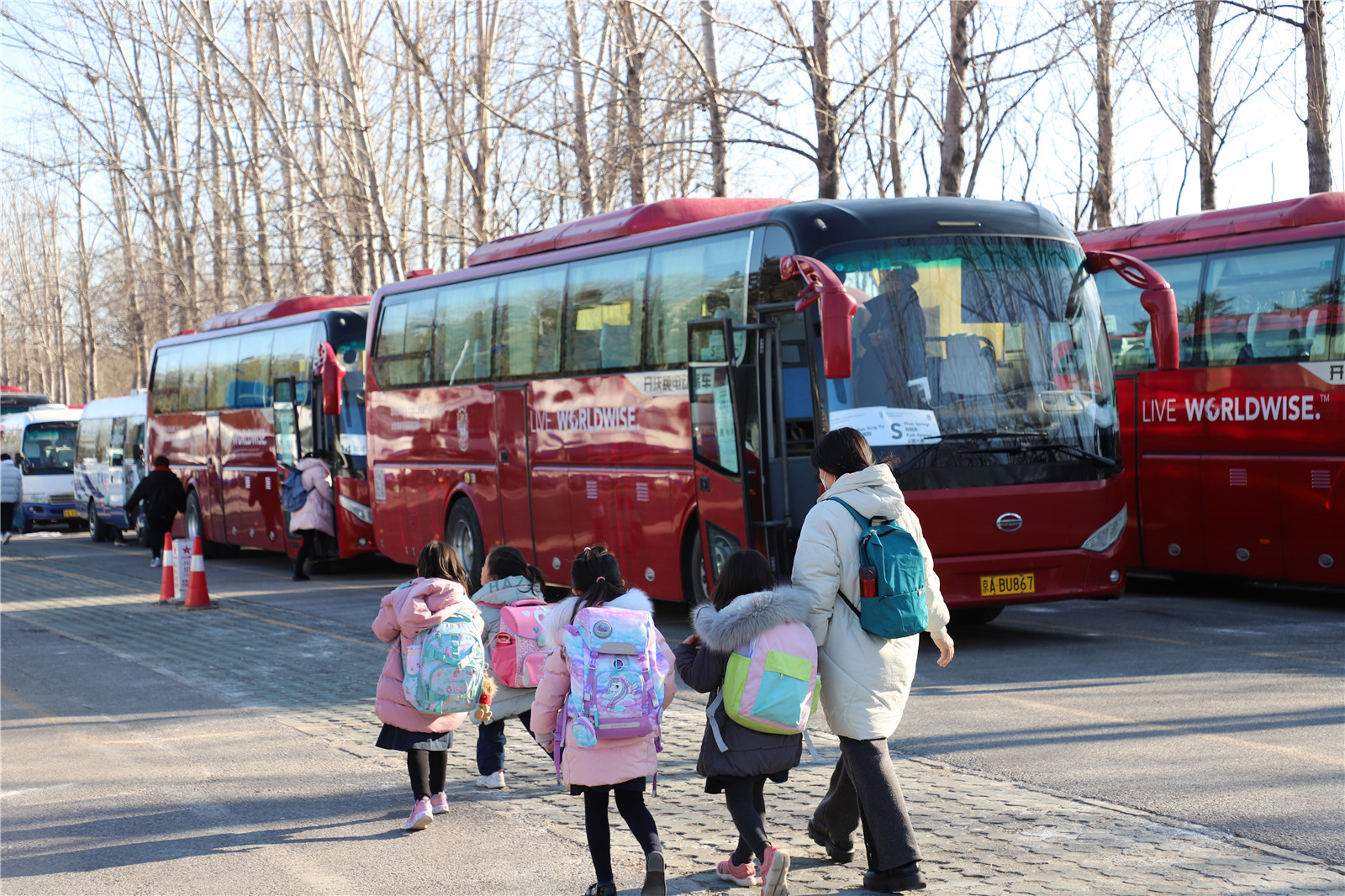
In their daily tasks, bus monitors are responsible for informing parents and school offices about potential delays. For example, when the school buses face traffic jams, traffic control or other unusual circumstances, timely communication to parents and the schools allows adjusting pick-up and drop-off times or timetables appropriately.
When encountering an emergency such as a student suddenly unwell or suffering from motion sickness during the ride, bus monitors can promptly provide adequate assistance thanks to their first aid training and medical kits.
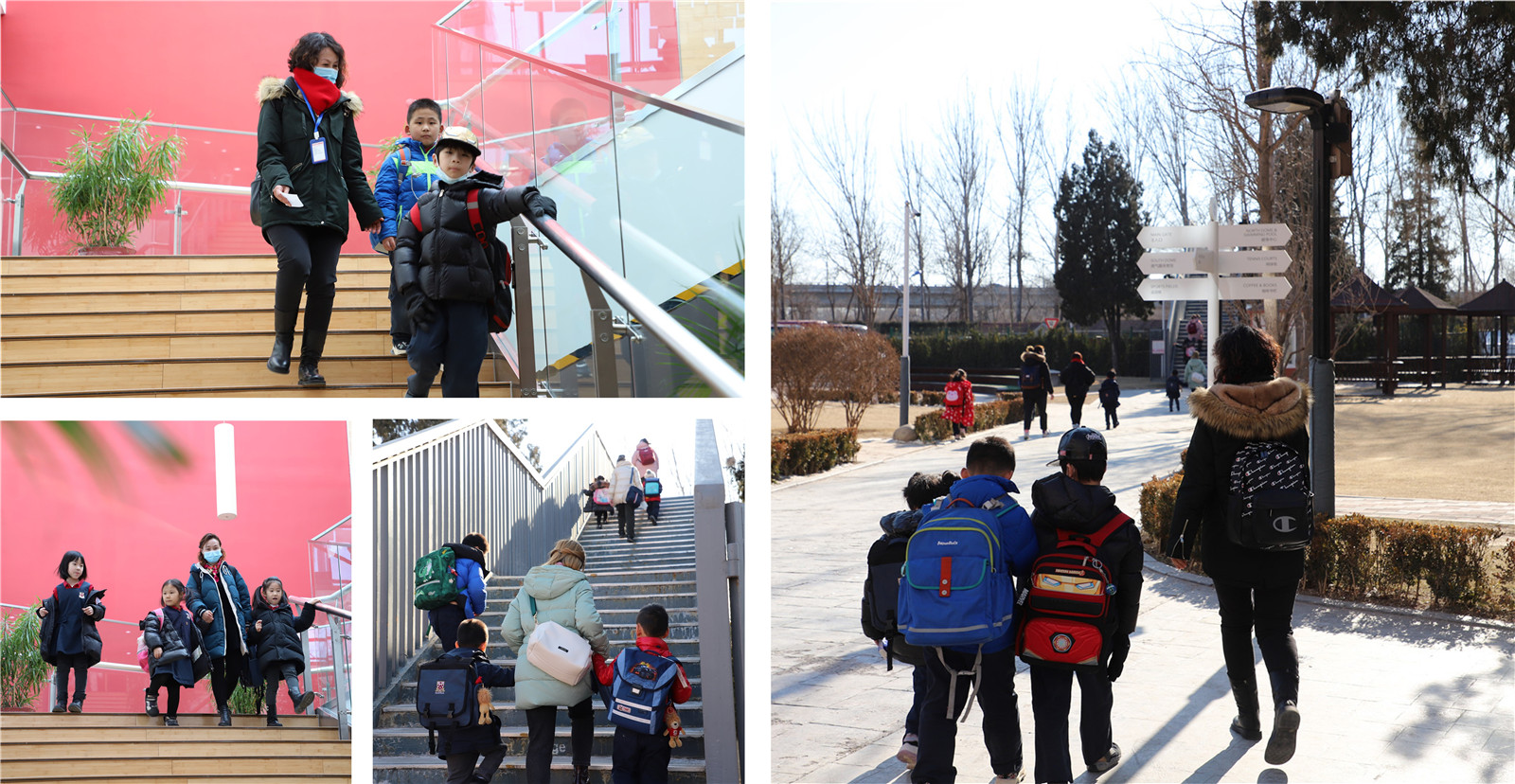
The bus monitors pay extra attention to younger students such as those in the Early Years. Our school buses are specially equipped with baby seats for Early Years students. In addition to the care and assistance mentioned above, bus monitors help young students settle in their car seats and fasten their seat belts. When school buses arrive at school every morning, bus monitors escort the young students and drop them off in their designated classes. In the afternoon, bus monitors pick up the young students in their classes and help them get on the school buses.
How do bus monitors help the parents?
Our bus monitors inform parents about the status of the school buses if the situation requires it. In case of traffic jams or sudden changes in the ECA schedule, parents are informed on time so they can reschedule their pick-up or drop-off accordingly. Some parents may also occasionally ask their bus monitor to help deliver items or messages to their children. For instance, bus monitors facilitate lanyards exchange whenever new lanyards are available across the College.
Other than the time spent on school buses, how do bus monitors work with the school staff?
During the daily office hours, each bus monitor has a desk in the office of different departments, so they can help with some daily office work such as some simple computer work, copying, printing, scanning, or delivering documents or items across departments. They also help the teachers to watch over the Early Years students’ lunch and playtime when needed.
This is not just a way for bus monitors to spend their time. It also helps them build a working relationship with the rest of the staff so that they have opportunities to get to know each other, build connections, and ultimately, work better with schools and provide help to students.
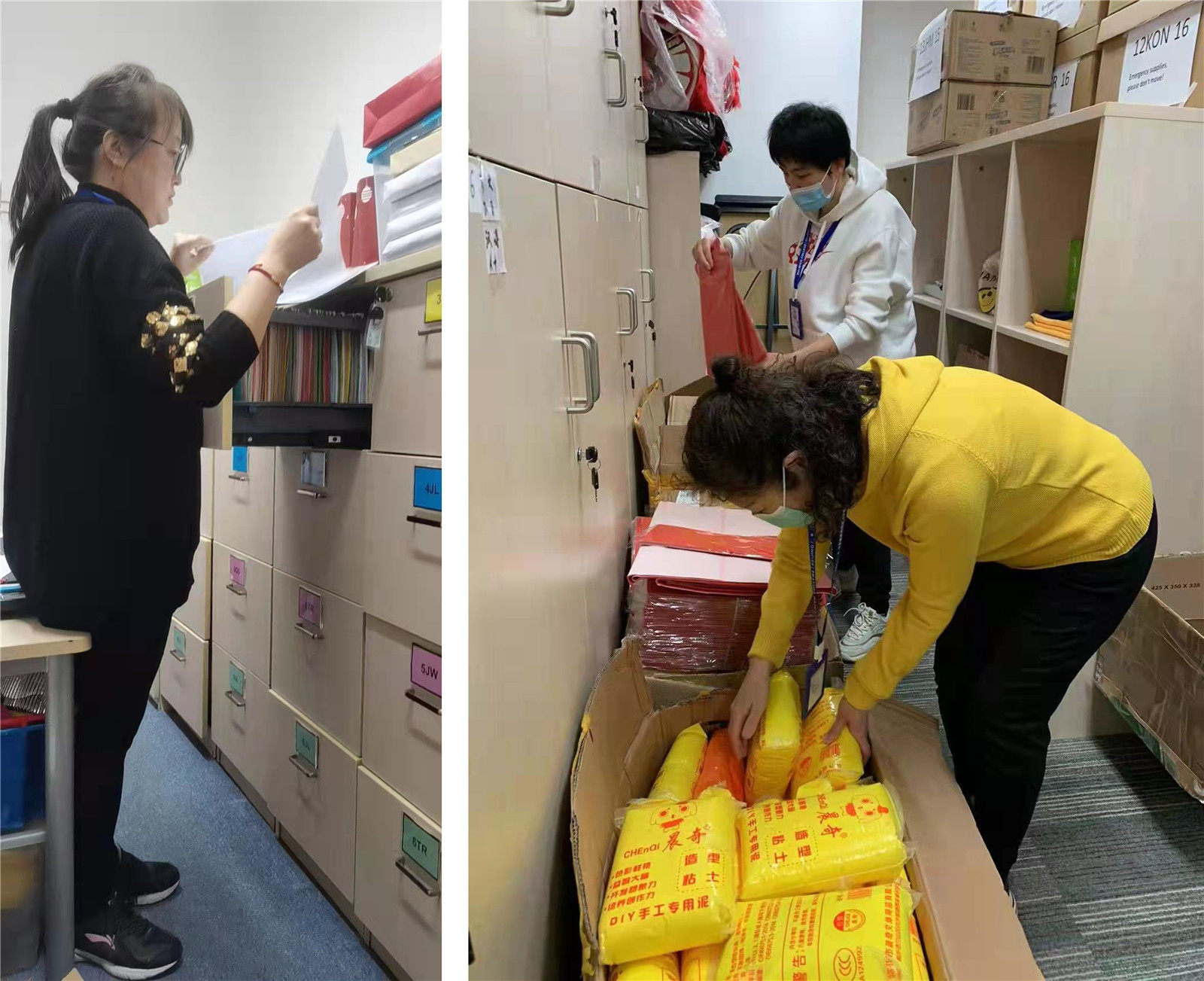
During the pandemic, are there any special challenges to the bus monitors? How do they cope with it?
The pandemic has indeed brought some challenges to the work of bus monitors, particularly an increase in their workload as they had to assist each teacher and student taking the school bus with the on-campus entry process. The new tasks include scanning the health kits, taking temperatures and checking masks are worn properly.
After each holiday, students must show a specific set of documents in compliance with the local authorities' back-on-campus Health and Safety requirements before returning to school. The bus monitors contact the school bus students or parents in advance and support the documents collection and inspection work according to the government and school’s requirements. They also must give parents enough time to prepare the documents and eventually even answer the questions from parents or students.
Bus monitors did a lot of additional work during the pandemic after each holiday to ensure students could return to school smoothly and take the school bus to school safely every morning. They nonetheless all maintained a very positive attitude. They have a good understanding of the requirements during these unprecedented times and actively support students and parents to the best of their abilities.

What do the bus monitors find most rewarding in their job?
In their own words, “this job enables us, bus monitors, to work with lovely children every day. It is a reward in itself! While doing so, we also improve our patience and adaptability through daily opportunities of learning new things. The growth during work keeps us motivated and in a positive mindset. The recognition and support from the parents give us a sense of accomplishment.“








